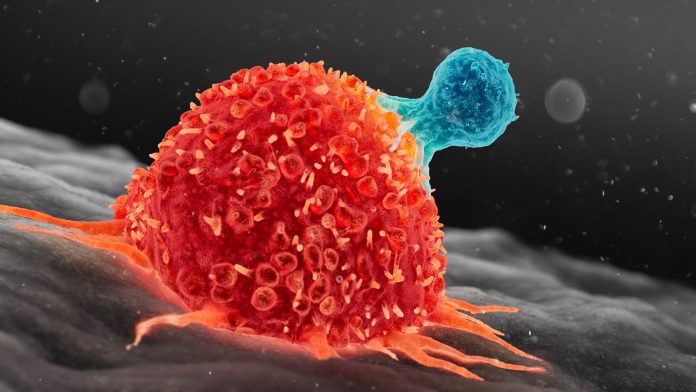
A study that looked at data from 562,145 people found the incidence rates of early-onset cancers increased substantially from 2010 to 2019. Gastrointestinal cancers had the fastest-growing incidence rates among all early-onset cancers. But the increase in breast cancer in women under 50 was also notable. In contrast the rate of cancers in individuals aged 50 years and older decreased over the study period.
The study appeared in JAMA Network Open last week. The lead author is Benjamin Koh.
Cancer has long been considered a disease that mostly affects adults 50 years and older. But recent data suggest a marked increase in the incidence of cancer of various organs among patients younger than 50 years, collectively known as early-onset cancer. These cancers affect a variety of organ systems, including the breast, colon and/or rectum, pancreas, head and neck, kidney, and reproductive organs. They cause substantial mortality and morbidity.
The increase in early-onset cancers, these authors say, is likely “associated with the increasing incidence of obesity as well as changes in environmental exposures, such as smoke and gasoline, sleep patterns, physical activity, microbiota, and transient exposure to carcinogenic compounds.”
But there is considerable evidence that there are unique features of cancers in younger people. For example, breast cancer in. young women is genetically distinct from that inn older women, according to work by researchers at Sanford Burnham Prebys. Researchers from Icahn School of Medicine at Mount Sinai, found that the immune response to cancer differed in people aged 50 or younger compared to older adults and there differences in treatment response to various targeted medications.
This JAMA study used population-based data from the National Cancer Institute Surveillance, Epidemiology, and End Results (SEER) program to estimate the incidence of early-onset cancers in the U.S. from 2010 to 2019. The age-standardized incidence rate of early-onset cancers increased overall and in females but decreased in males. the highest number of incident cases of early-onset cancer were in the breast (n = 12 649).
In 2020, the National Cancer Institute reported that since the 1990s, the rate of colorectal cancer has been rising steadily among adults younger than 50. In addition, more younger people are dying from the disease, which is the deadliest cancer type among men and the third deadliest among women. Meanwhile, the rate of this cancer has plummeted among older adults, in part thanks to regular colonoscopies and lower rates of smoking.
A key question is how to pick up these cancers, since young people are much less likely to be screened. A recent study from Vanderbilt found, however, that population-wide hereditary breast and ovarian cancer screening in younger women is actually cost-effective. These researchers point out that younger women are in a better position that older women to take action to prevent these diseases through prophylactic surgery.













